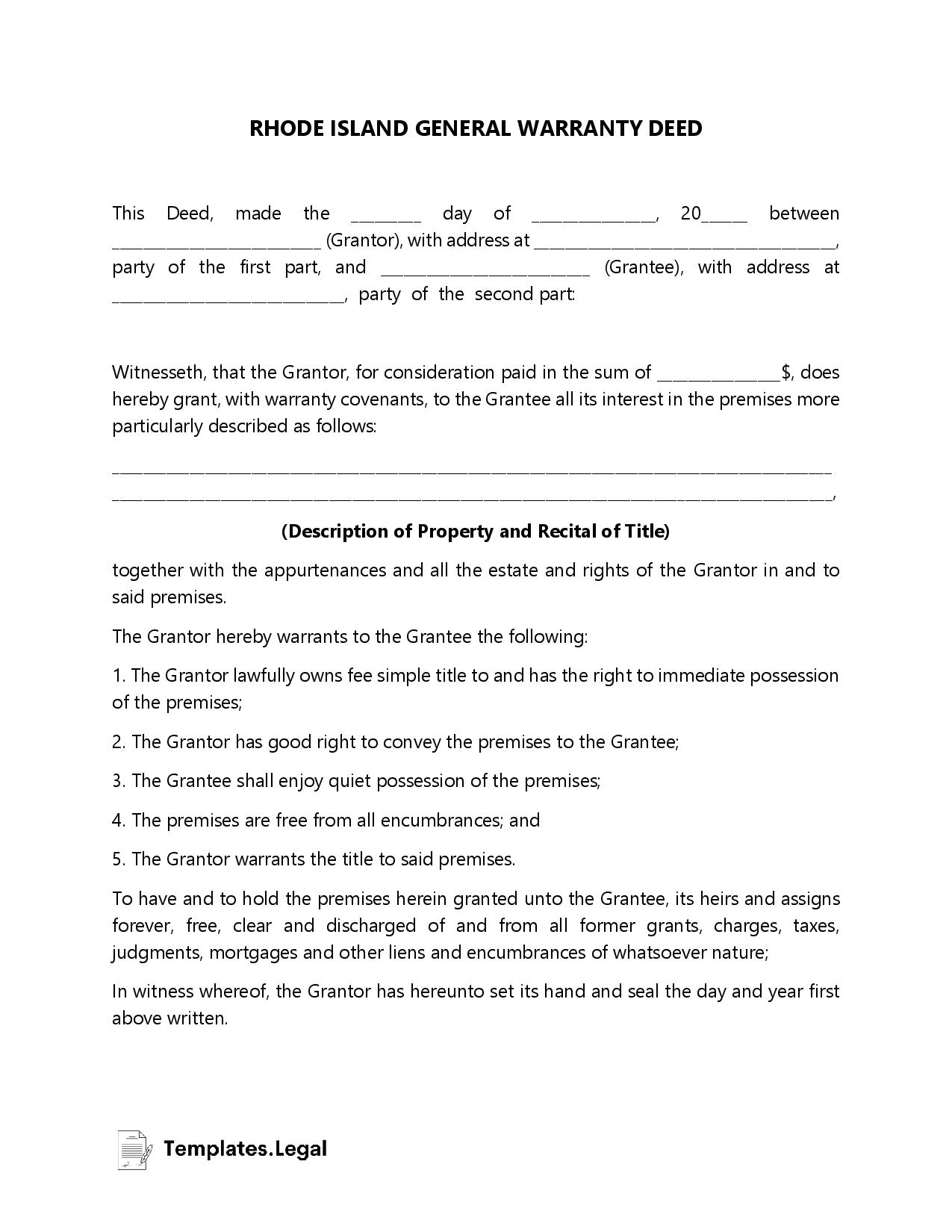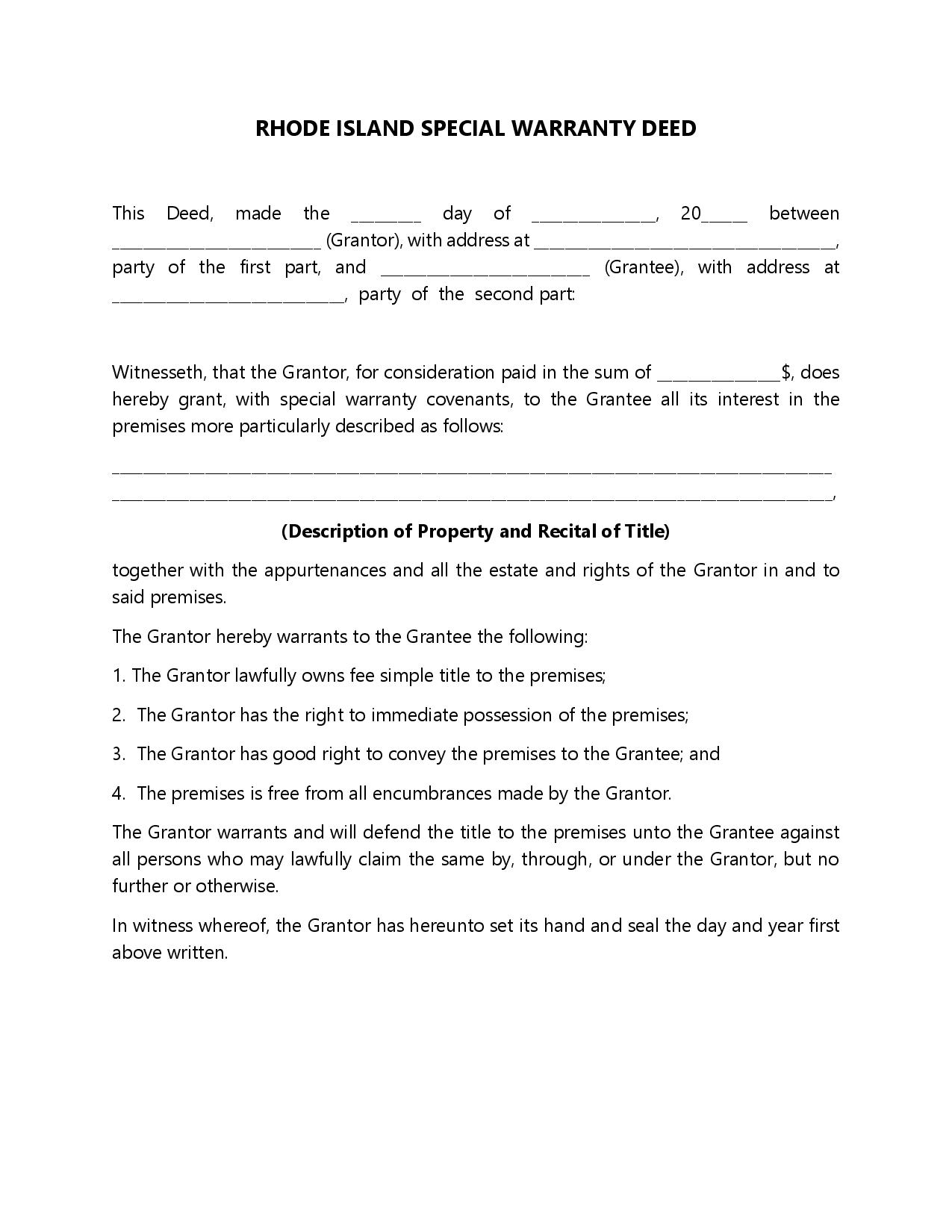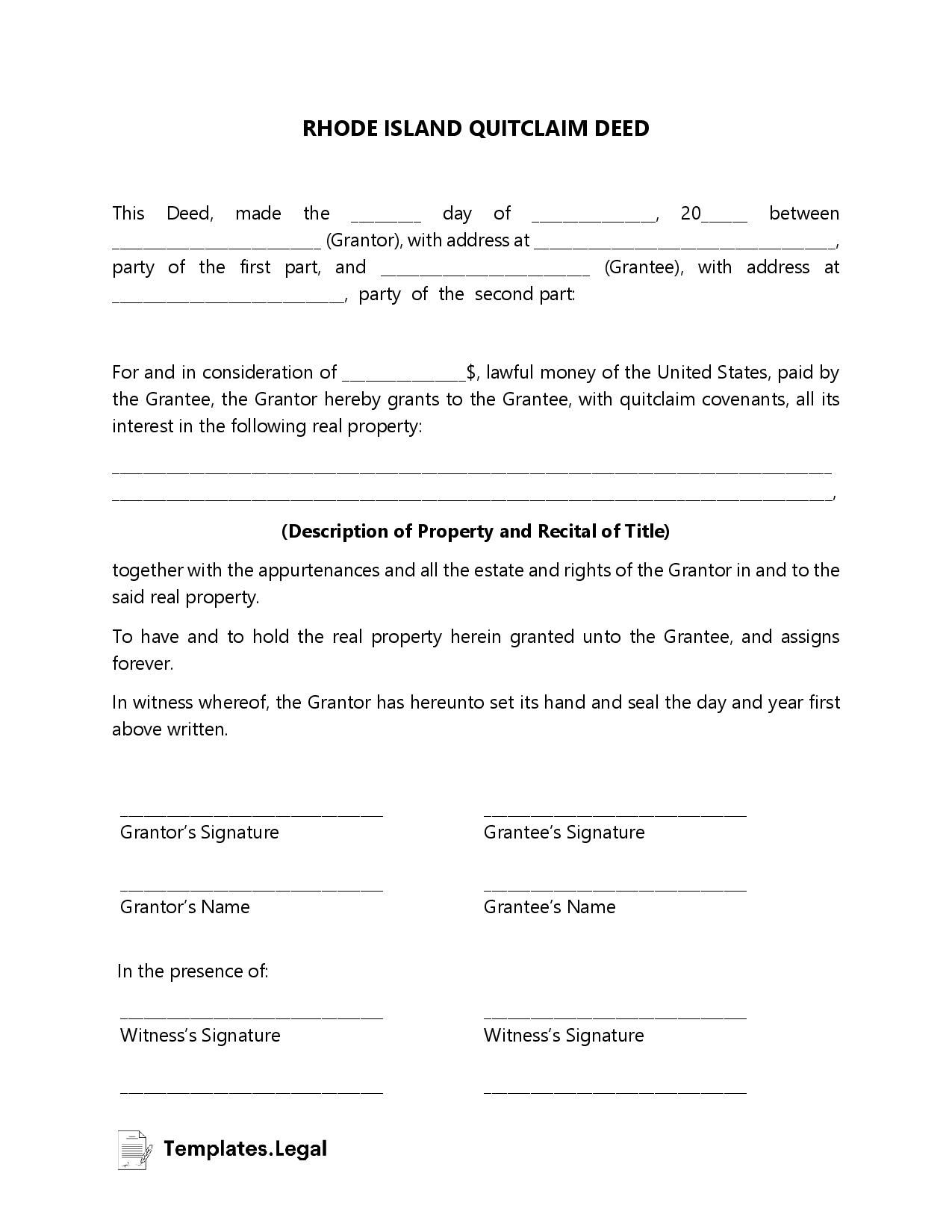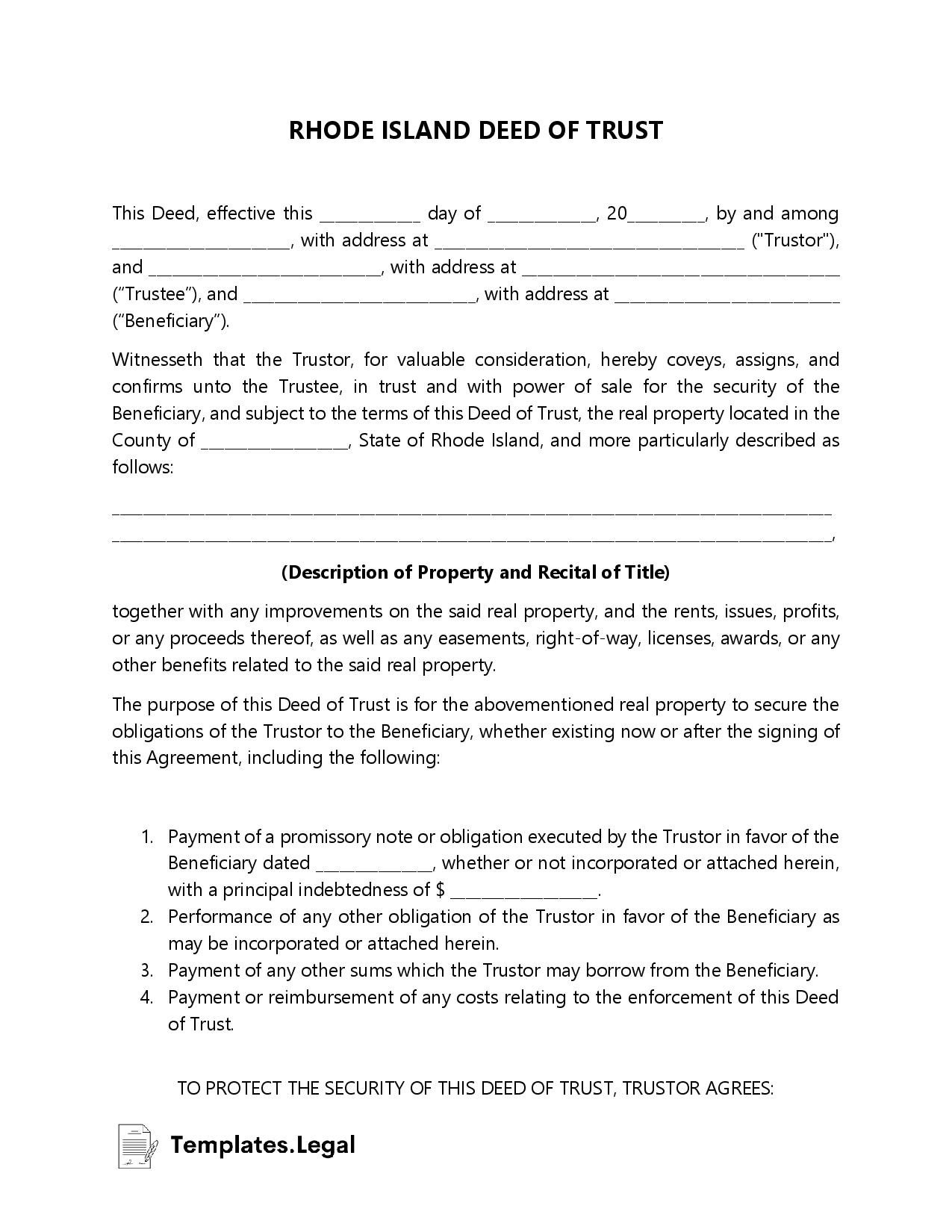Rhode Island Deed Forms & Templates
The transfer of property in Rhode Island requires a notarized deed that includes the buyer’s mailing address, unlike other states. Rhode Island deed forms, however, come in the typical assortment of general and limited warranty, quitclaim, and bargain and sales.
Rhode Island allows anyone to draw their own deed based on these templates, so long as the contract is notarized before filing with the local town clerk.
Individual townships such as Narrangansett, R.I., typically charge $84 to record a deed transfer, plus $1 per additional page added to the contract.
Rhode Island General Warranty Deed
The Rhode Island general warranty deed is the most common type of deed used for real estate transactions, particularly for residential properties. The general warranty refers to the seller’s legal guarantee to defend the deed against any third-party claim once the deed has been notarized and recorded.
The Rhode Island general warranty deed would be the most common and sensible type of contract for the typical residential sales transaction, offering the buyer the most legal protection.
Rhode Island Special Warranty Deed
The Rhode Island special or limited warranty deed offers less protection to the buyer than the general warranty deed.
This type of deed holds the seller responsible only for defending against claims originating during their ownership, rather than throughout the full chain of title. Most often, the Rhode Island limited warranty deed is used for commercial transactions, whereby the seller wishes to demonstrate good faith during their time of ownership.
Rhode Island Quitclaim Deed
A quitclaim deed is a specialty instrument for the transfer of property that makes sense in limited circumstances, such as transferring property to a family member when no money changes hands. The quitclaim deed may also serve to cure a title defect such as a misspelled name.
The quitclaim deed transfers the seller’s interest in a property to the buyer, but makes no guarantee of the validity of that title. Therefore, quitclaim deeds make sense in divorce settlements and transactions among family members.
In some cases, family members with inheritance claims to a property may choose to consolidate their claims to one person.
Rhode Island Deed of Trust
This document is necessary when the buyer takes out a loan to pay for a property and makes a deal with the lender. By means of a deed of trust, the individual who is acquiring the property ensures that they will complete the full payment for the property. A third party, called a trustee, holds the property title until payment is completed.
FAQs
Below are the most important questions and answers on Rhode Island Deeds.




